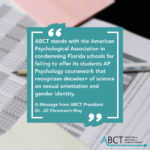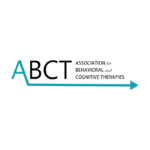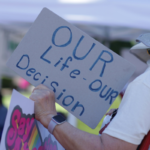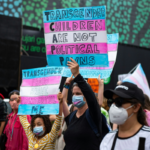Find a CBT Therapist
Search through our directory of local clinicians.
Statements from the ABCT Board
Our collection of every statement from our Board of Directors that can be found on this website. Statements are organized from most to least recent.
 Acknowledging Maui - Our thoughts and deepest condolences go out to the families and friends of those affected by this unimaginable loss and the aftermath they are now experiencing.
Acknowledging Maui - Our thoughts and deepest condolences go out to the families and friends of those affected by this unimaginable loss and the aftermath they are now experiencing. ABCT Stands with APA in condemning Florida Schools Censorship of AP Psychology - ABCT stands with the American Psychological Association in condemning Florida schools for failing to offer its students AP Psychology coursework that recognizes decades+ of science on sexual orientation and gender identity.
ABCT Stands with APA in condemning Florida Schools Censorship of AP Psychology - ABCT stands with the American Psychological Association in condemning Florida schools for failing to offer its students AP Psychology coursework that recognizes decades+ of science on sexual orientation and gender identity. ABCT Stands with the APA in Denouncing the SCOTUS Decision on Affirmative Action - Here at ABCT, we stand with the American Psychological Association (APA) in denouncing the Supreme Court’s decision on the use of race in college admissions decisions.
ABCT Stands with the APA in Denouncing the SCOTUS Decision on Affirmative Action - Here at ABCT, we stand with the American Psychological Association (APA) in denouncing the Supreme Court’s decision on the use of race in college admissions decisions. Fighting So-Called “Conversion Therapy” - ABCT joins the USJS to establish professional standards among healthcare professionals who reject “conversion therapy.”
Fighting So-Called “Conversion Therapy” - ABCT joins the USJS to establish professional standards among healthcare professionals who reject “conversion therapy.” ABCT’s Statement on Women’s History Month - Dorothy Susskind, a cofounder of ABCT and the first woman in the organization, was a trailblazer in the field of the behavioral and cognitive therapies.
ABCT’s Statement on Women’s History Month - Dorothy Susskind, a cofounder of ABCT and the first woman in the organization, was a trailblazer in the field of the behavioral and cognitive therapies.  ABCT Board of Directors Statement Regarding the Hyatt - The Association for Behavioral and Cognitive Therapies (ABCT) was informed of a recent incident involving the Hyatt Regency Denver and National Association of School Psychologists and their President Dr. Celeste Malone.
ABCT Board of Directors Statement Regarding the Hyatt - The Association for Behavioral and Cognitive Therapies (ABCT) was informed of a recent incident involving the Hyatt Regency Denver and National Association of School Psychologists and their President Dr. Celeste Malone. Heartbroken and Angry - We reaffirm our commitment as an organization to provide resources to those struggling from the impact of gun violence and loss.
Heartbroken and Angry - We reaffirm our commitment as an organization to provide resources to those struggling from the impact of gun violence and loss. How ABCT is Addressing So-Called Conversion Therapy Articles and Research Causing Harm to Sexual and Gender Minority Individuals - ABCT is committed to the work of reducing the harms from previously published articles focusing on changing individuals who are members of sexual and gender minority groups. The Board is actively outlining proactive steps to guide and energize our systematic efforts in this area.
How ABCT is Addressing So-Called Conversion Therapy Articles and Research Causing Harm to Sexual and Gender Minority Individuals - ABCT is committed to the work of reducing the harms from previously published articles focusing on changing individuals who are members of sexual and gender minority groups. The Board is actively outlining proactive steps to guide and energize our systematic efforts in this area. A Message From Our President - After we issued the apology, ABCT’s Board of Directors, like many of you, began discussing what to do next to minimize future harms related to the practice and dissemination of SOGIECEs.
A Message From Our President - After we issued the apology, ABCT’s Board of Directors, like many of you, began discussing what to do next to minimize future harms related to the practice and dissemination of SOGIECEs. Striving to Do More - Cognitive behavior therapy has much to offer the world in scary times. We must remember our theories and our interventions have implications outside the therapy room and we must strive to do more as we hold ourselves to the highest standards to practice in a way that best serves our communities
Striving to Do More - Cognitive behavior therapy has much to offer the world in scary times. We must remember our theories and our interventions have implications outside the therapy room and we must strive to do more as we hold ourselves to the highest standards to practice in a way that best serves our communities ABCT Apology for Behavior Therapy’s Contribution to the Development and Practice of Sexual Orientation and Gender Identity and Expression Change Efforts - The ABCT Board of Directors and past leadership have released an apology for behavior therapy’s contributions to the development and practice of sexual orientation and gender identity and expression change efforts.
ABCT Apology for Behavior Therapy’s Contribution to the Development and Practice of Sexual Orientation and Gender Identity and Expression Change Efforts - The ABCT Board of Directors and past leadership have released an apology for behavior therapy’s contributions to the development and practice of sexual orientation and gender identity and expression change efforts.  Limiting Access to Women’s Rights to Healthcare Detrimental to Mental Health and Wellbeing - The negative impact on the mental health of women who are denied abortion is well-documented in psychological literature.
Limiting Access to Women’s Rights to Healthcare Detrimental to Mental Health and Wellbeing - The negative impact on the mental health of women who are denied abortion is well-documented in psychological literature.
 ABCT Condemns the Florida Legislature’s Attack on LGBTQ+ Youth - ABCT's Board of Directors stands with the Sexual and Gender Minority SIG in condemning the Florida legislature’s “Don’t Say Gay” bill.
ABCT Condemns the Florida Legislature’s Attack on LGBTQ+ Youth - ABCT's Board of Directors stands with the Sexual and Gender Minority SIG in condemning the Florida legislature’s “Don’t Say Gay” bill. “It’s OK Not to Be OK” - “Athletes like Simone Biles should be congratulated for speaking out about their health struggles,” says ABCT President Dr. David Tolin.
“It’s OK Not to Be OK” - “Athletes like Simone Biles should be congratulated for speaking out about their health struggles,” says ABCT President Dr. David Tolin.  ABCT Statement on Racism and Discrimination - ABCT is outraged by the murder of George Floyd, Breonna Taylor, and countless others at the hands of police officers and broader law enforcement, healthcare, and many other societal systems that devalue Black lives.
ABCT Statement on Racism and Discrimination - ABCT is outraged by the murder of George Floyd, Breonna Taylor, and countless others at the hands of police officers and broader law enforcement, healthcare, and many other societal systems that devalue Black lives. Potential for Positive Change - The leadership and staff of ABCT acknowledge the potential for positive change as a result of the conviction of Derek Chauvin for the murder of George Floyd.
Potential for Positive Change - The leadership and staff of ABCT acknowledge the potential for positive change as a result of the conviction of Derek Chauvin for the murder of George Floyd. Stopping AAPI Hate - Staff woke up to the news of another anti-AAPI hate crime this morning. We can’t fix hate or bigotry, but we have resources that might help you deal its aftershocks.
Stopping AAPI Hate - Staff woke up to the news of another anti-AAPI hate crime this morning. We can’t fix hate or bigotry, but we have resources that might help you deal its aftershocks. Condemning Violence Against the AAPI Community - ABCT joined the Asian American Psychological Association (AAPA) in condemning violence against the AAPI community.
Condemning Violence Against the AAPI Community - ABCT joined the Asian American Psychological Association (AAPA) in condemning violence against the AAPI community. ABCT Statement on COVID-19 - We at the Association for Behavioral and Cognitive Therapies want to reassure you that concern and worry are normal and adaptive during a pandemic.
ABCT Statement on COVID-19 - We at the Association for Behavioral and Cognitive Therapies want to reassure you that concern and worry are normal and adaptive during a pandemic.  Condemning Violence Against the AAPI Community in North America - ABCT expresses its support for the Asian American Psychological Association’s (AAPA) recent statement condemning violence against the AAPI community.
Condemning Violence Against the AAPI Community in North America - ABCT expresses its support for the Asian American Psychological Association’s (AAPA) recent statement condemning violence against the AAPI community.
